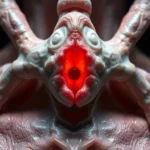
Introduction
Ear health is a critical aspect of overall well-being in dogs, particularly for breeds like the French Bulldog. These adorable companions are known for their distinctive features and playful personalities, but they also face unique health challenges. Among these, ear infections are a common concern that can lead to significant discomfort if not addressed promptly.
French Bulldogs are prone to a variety of health issues, and ear infections stand out due to their frequency and potential severity. Understanding the causes, symptoms, and treatment options for ear infections in French Bulldogs is essential for pet owners. By being proactive and informed, you can help your furry friend maintain healthy ears and avoid unnecessary pain.
Understanding Ear Infections in French Bulldogs
What are Ear Infections?
Ear infections, or otitis, refer to inflammation and infection within the ear canal. There are three primary types of ear infections:
- Otitis Externa: This is the most common form, affecting the outer ear canal and often caused by bacteria, yeast, or allergens.
- Otitis Media: This infection occurs in the middle ear and can develop from untreated otitis externa. It often requires more intensive treatment.
- Otitis Interna: The least common type, this infection affects the inner ear and can lead to serious health complications if not treated.
Common signs and symptoms of ear infections in French Bulldogs include excessive scratching or rubbing of the ears, discharge from the ear canal, swelling and redness, and a foul odor emanating from the ears. Behavioral changes such as irritability or lethargy may also indicate an issue.
Why are French Bulldogs Prone to Ear Infections?
Several factors contribute to French Bulldogs being susceptible to ear infections. Their unique anatomical features, including floppy ears and narrow ear canals, create an environment that can trap moisture and debris. This makes it easier for bacteria and yeast to flourish.
Environmental factors also play a significant role in ear health. High humidity levels, exposure to allergens such as pollen and dust, and poor air quality can exacerbate the likelihood of infections. Additionally, genetic predispositions may increase the risk of allergies and skin conditions, which can lead to ear infections.
Recognizing the Signs of Ear Infections
Common Symptoms to Watch For
Being vigilant about your French Bulldog’s ear health can help catch infections early. Key symptoms to monitor include:
- Excessive Scratching or Pawing at Ears: If your dog is frequently scratching or rubbing their ears against surfaces, it may be a sign of irritation or discomfort.
- Discharge: Pay attention to the color, odor, and consistency of any discharge. Yellow or brown discharge with a foul smell often indicates an infection.
- Swelling and Redness: Look inside the ear canal for signs of inflammation. Redness or swelling can indicate an active infection.
- Foul Odor: A strong, unpleasant smell coming from the ears is often a sign of infection.
- Behavioral Changes: Changes such as increased irritability or lethargy can indicate your dog is in pain or discomfort.
When to Consult a Veterinarian
If you notice any of these symptoms, it’s essential to consult a veterinarian. While some mild irritations can be managed at home, prompt veterinary care is crucial when symptoms persist or worsen. Ignoring ear infections can lead to complications, including chronic infections or hearing loss.
Diagnosis of Ear Infections
Veterinary Examination
When you take your French Bulldog to the vet for an ear infection, you can expect a thorough examination. The veterinarian will visually inspect the ears and may use an otoscope to look deeper into the ear canal.
Diagnostic tests may include:
- Ear Swabs: Collecting samples from the ear canal can help identify the specific bacteria or yeast causing the infection.
- Culture: In more severe cases, a culture may be performed to determine the best course of antibiotic treatment.
- Imaging: In cases of recurrent infections, imaging studies may be necessary to evaluate the ear structures.
Differentiating Between Types of Infections
Identifying the type of ear infection is crucial for effective treatment. Your veterinarian will assess the symptoms and diagnostic results to determine whether the infection is external, middle, or inner. Additionally, they will look for underlying causes, such as allergies or parasites, that may be contributing to the ear infection.
Treatment Options for Ear Infections
Conventional Treatments
Treatment for French Bulldog ear infections often involves a combination of medications and cleaning solutions:
- Antibiotics: These are prescribed to eliminate bacterial infections. Depending on the severity, they may be topical or oral.
- Antifungals: If yeast is present, antifungal medications will be necessary to treat the infection.
- Anti-inflammatories: These medications can help reduce swelling and alleviate pain.
Regular ear cleaning is also a critical part of treatment. Your veterinarian may recommend specific ear cleaning solutions to help remove debris and keep the ear canal dry.
Home Remedies and Natural Treatments
While some home remedies can provide relief, it’s essential to consult your veterinarian before trying them. Some safe options include:
- Apple Cider Vinegar: Diluted with equal parts water, it can be used to clean the ears and help balance pH levels.
- Coconut Oil: Known for its antifungal properties, it may provide relief when applied sparingly.
However, caution is necessary. Not all home treatments are safe, and some can exacerbate the problem. Always consult with your vet before applying any home remedy.
Long-term Management Strategies
Managing ear infections in French Bulldogs involves ongoing care and monitoring:
- Follow-up Visits: Regular check-ups help ensure the infection has cleared and that there are no underlying issues.
- Diet Adjustments: If allergies are a concern, your vet may recommend dietary changes to reduce allergic reactions that could lead to infections.
- Routine Ear Cleaning: Establishing a regular ear cleaning routine can help prevent future infections. Your vet can provide guidance on how often to clean your dog’s ears and which products to use.
Preventing Ear Infections in French Bulldogs
Daily Care and Maintenance
Maintaining ear health is essential for preventing infections in French Bulldogs. Daily care includes:
- Regular Cleaning Routines: Clean your dog’s ears as advised by your veterinarian, typically once a week or after swimming.
- Drying Ears: Always dry your dog’s ears thoroughly after baths or swimming. Trapped moisture can lead to infections.
Environmental Management
Reducing exposure to allergens and irritants can significantly improve your dog’s ear health. Consider the following:
- Reducing Allergen Exposure: Keep your home clean and minimize dust, pollen, and other allergens. Regularly vacuum and use air purifiers if necessary.
- Maintaining a Clean Living Space: Create a clean environment for your dog to minimize the risk of infections.
Healthy Habits
Encouraging healthy habits can also help prevent ear infections:
- Balanced Diet and Hydration: A nutritious diet supports your dog’s immune system and overall health. Ensure they have access to fresh water.
- Regular Check-ups: Routine veterinary visits allow for early detection of potential health issues, including ear infections.
Frequently Asked Questions (FAQs)
Can ear infections be recurring?
Yes, ear infections can recur in French Bulldogs, especially if underlying issues like allergies or anatomical predispositions are not addressed. Regular veterinary care and monitoring are essential for managing this risk.
Are there specific breeds more prone to ear infections?
While French Bulldogs are particularly susceptible due to their ear structure, other breeds with floppy ears, such as Cocker Spaniels and Basset Hounds, are also at higher risk for ear infections.
What should I do if my dog is constantly shaking its head?
If your dog is shaking its head frequently, it may indicate discomfort or irritation in the ears. It’s best to consult your veterinarian for an examination to determine the cause and necessary treatment.
Conclusion
Maintaining the health of your French Bulldog’s ears is crucial for their overall well-being. By understanding the signs of ear infections, seeking prompt veterinary care, and implementing preventive measures, you can help your furry friend avoid the pain and discomfort associated with these infections. Regular check-ups and a proactive approach to ear care will ensure your French Bulldog remains happy and healthy.
Taking the time to educate yourself about French Bulldog ear infections can make a significant difference in your pet’s quality of life. Don’t hesitate to reach out to your veterinarian with any concerns regarding your dog’s ear health.









